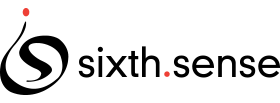
Pressure
And …. relax …
Easier said than done? If you are struggling to switch off at the end of a busy day, it might be because you are applying the wrong techniques.
It’s easy to think that in order to slow down and stop, all you need to do is take your foot off the accelerator; but just as you can’t drive safely without using your brakes, nor can you reach a state of optimal relaxation without applying certain techniques.
So, what is your natural braking system and how do you make it work for you?
Reducing pressure is one thing but it’s not enough. The mistake is to think of relaxation as being a passive process; something that happens naturally when stress is reduced. That’s not the case. You need to actively engage the relaxation response.
If you are interested in the technical detail, it goes something like this: stress and pressure stimulate your sympathetic nervous system. This is the adrenalin-fuelled fight and flight response. Proper relaxation, on the other hand, stimulates the parasympathetic nervous system, which leads to the rest and digest response.
Getting the rest and digest system to kick into life is easy, if you know how. Here are three techniques:
- Focus on your breath. Stress makes you breathe too much. This upsets the relative proportion of carbon dioxide in your blood and this starves you of oxygen. A weird paradox, but true. If you slow your breathing down and breathe into your belly, that will help. For the greatest impact, you need to breathe out for longer than you breathe in. So, count to four as you breathe in and to six as you breathe out. As you breathe in, your heart rate goes up and your sympathetic nervous system gets a boost. As you breathe out, your heart rate goes down and your parasympathetic nervous system does the work. Relaxation achieved.
- Release muscular tension. Tight muscles are a signal to your body that you are stressed. The problem is, we live with a lot of tension without noticing it. So have a scan of your body and see where feels tight or uncomfortable. For many of us, hunched over computers, tension is particularly felt across the shoulders. Do some stretching, go for a massage or try deliberately tensing tight muscles as you breathe in and and then let go of the tightness as you breathe out.
- Try a little mindfulness. There’s a lot written about this topic but what mindfulness really entails is focused attention on the here and now. Maybe go for a walk, and as you do, concentrate on your senses? What can you see, hear, smell and feel beneath your feet? Or get lost in a great book, a film or a piece of music. Give yourself a few minutes each day to be fully present.
Three, simple techniques that could help. Blend these with good sleep, some exercise and decent food, and your relaxation will improve no end.
As always, if you would like to know more, get in touch. We have helped thousands of people in many organisations achieve their goal healthy of high performance.
We are at [email protected]
Picture credit goes to our client, Adrian. He tells us that just looking at this view helps him clear his head. What a wonderful way to achieve a bit of mindfulness.

Start The Discussion